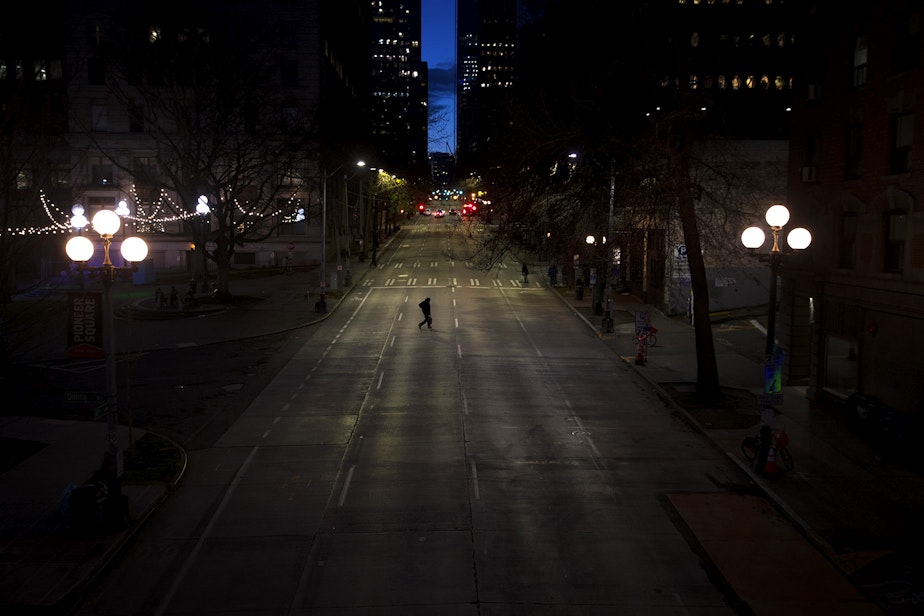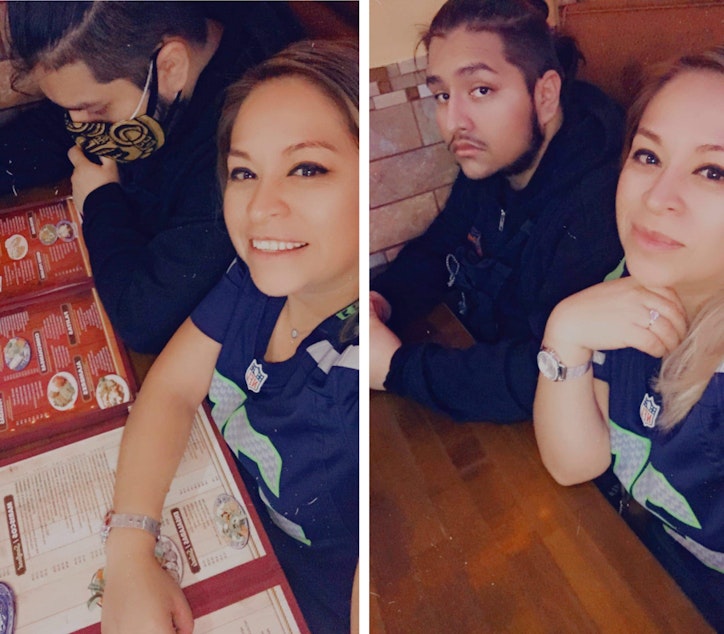'Gracias por todo.' Delivering food during the pandemic was worth it to hear my mom say these words

During the lockdown, the restaurant industry was only hanging on through online orders and deliveries.
But for me, those orders are how my mom and I made our rent.
During Covid, many people have relied on meal delivery services like Doordash.
On the other side of each delivery is a person with a story.
Luis Hernandez Vargas shared his experience of working as a delivery person while taking care of his immunocompromised mother for our series of first-person accounts, Voices of the Pandemic.
When I first started driving for Doordash in my senior year of high school, it was a hard decision for my mom to make with me.
She knew that if I ended up infected that she would suffer the most. But my family had to figure out how we were going to survive the pandemic. And without help from the government, we were all we had.
Sponsored
So I clocked in.
But even with washing my hands and cleaning the car all the time, it didn’t feel like enough to protect my mom.
I remember the first week working, I was coming home and my mom was cooking dinner. And before I even said anything she told me, “Change your clothes, take your shoes off, go take a shower.”
I hadn’t even told her that I loved her or even a hello.
Later on, during my time delivering, I started earlier and would come home later. I came home only to shower and eat some home-cooked food.
Sponsored
I rarely saw my mom sometimes.
I wouldn’t go to school for weeks. But I was moving on with what I wanted and helping my mom — I didn’t want to have to choose.
I’d basically drive the same route every night: Taking a Left off of Rainier Avenue on to Dearborn Street and into the International District. Growing up, I’d always come to this neighborhood with my family on special occasions.
But now I was alone. It was just me and my delivery bag. The streets were dead.
I remember the fluorescent lights on the wet pavement, how beautiful it was to look over the city and be met with the hearts all over the skyscrapers.
Sponsored
And then there were moments that just took the life out of me, like on Mother’s Day — delivering a $160 steak and wondering if I did enough for my mom with the flowers I got for her.
I cried on the drive home, hoping that I had enough money for my dreams and to keep my mom afloat.
Or the times where I delivered food to hospitals. You know, the level of seriousness never hit me as hard as pulling up and seeing three or four medics sitting on the curb with their hands holding their heads up from the exhaustion.
Or the times where I would go into a restaurant and the only music playing was in Spanish, and the faces behind the counter looked as brown as me. I knew that many undocumented people had no choice but to work during times like this.
And when that lockdown eased up, and my mom was allowed to go back to her waitressing job, I kept going.
Sponsored
Even while being immunocompromised, my mom works where her clients don't wear a mask for their entire stay.
But I can't think about it anymore because even though she takes that risk, we can't just stop working. We don't have that luxury. It's just the two of us and I know that if I need anything, she's here for me too.

At the end of the summer I moved from Seattle to New York for college.
Sponsored
At the beginning, the transition was hard. I would cry on the phone with my mom when I was going through it, and I knew that she and the rest of my family knew the pain of leaving everything behind for a shot at a better future.
Even with my experience in a once in a lifetime tragedy, and working through said tragedy, I wouldn’t change my actions because of when I heard her say: "Gracias por todo. Me ayudaste mucho."
Nights without sleep and delivering nonstop, night after night, the words my mother gave me here in New York give me strength to keep going.
Luis Hernandez Vargas is a producer with KUOW's Radioactive youth media program.
Joshua McNichols edited and provided sound design for this story, which featured songs by Zachary David and Sad Moses, licensed via MusicBed. The Voices of the Pandemic theme song is by Alec Cowan.
This story was part of our series, Voices of the Pandemic.



